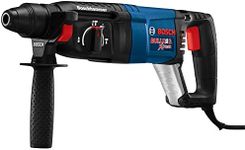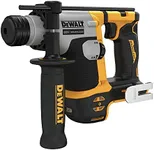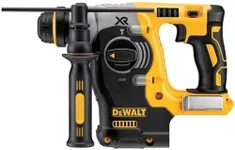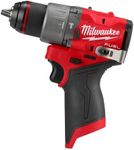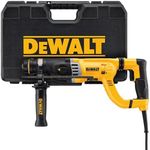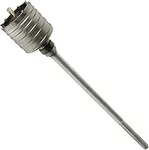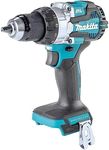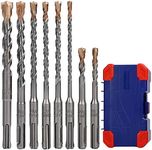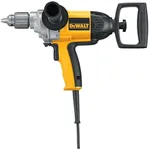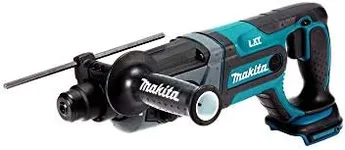Buying Guide for the Best Concrete Drills
Choosing the right concrete drill can make a significant difference in the efficiency and quality of your work. Concrete drills are specialized tools designed to bore through tough materials like concrete, brick, and stone. When selecting a concrete drill, it's important to consider several key specifications to ensure you get the best fit for your needs. Understanding these specs will help you make an informed decision and choose a drill that meets your specific requirements.PowerPower in concrete drills is measured in watts (W) or amps (A). This spec indicates the drill's ability to handle tough materials. Higher power means the drill can handle more demanding tasks and drill through harder materials more easily. For light-duty tasks, a drill with lower power (around 500-700W or 5-7A) may suffice. For heavy-duty tasks, such as drilling through thick concrete, look for a drill with higher power (above 800W or 8A). Consider the type of projects you will be working on to determine the appropriate power level.
SpeedSpeed in concrete drills is measured in rotations per minute (RPM). This spec indicates how fast the drill bit spins. Higher speeds are useful for drilling through softer materials, while lower speeds are better for harder materials like concrete. Variable speed settings are ideal as they allow you to adjust the speed based on the material you're working with. For general use, a drill with a speed range of 0-3000 RPM is versatile. If you frequently work with different materials, opt for a drill with adjustable speed settings.
Hammering ActionHammering action, or impact rate, is measured in blows per minute (BPM). This spec indicates how many times the drill bit strikes the material per minute, which helps in breaking through tough surfaces. A higher BPM means more efficient drilling through concrete. For light-duty tasks, a BPM of around 20,000-30,000 is sufficient. For heavy-duty tasks, look for a drill with a BPM above 30,000. Consider the hardness of the materials you will be drilling to choose the right hammering action.
Chuck SizeThe chuck size determines the maximum diameter of the drill bit that can be used with the drill. Common chuck sizes for concrete drills are 1/2 inch and 5/8 inch. A larger chuck size allows for the use of larger drill bits, which is useful for drilling bigger holes. If you need to drill large holes or use a variety of bit sizes, opt for a drill with a larger chuck size. For general use, a 1/2 inch chuck size is usually sufficient.
WeightThe weight of the drill affects its portability and ease of use. Lighter drills are easier to handle and reduce fatigue during extended use, but they may have less power. Heavier drills are more powerful but can be tiring to use for long periods. If you need to move around a lot or work in tight spaces, a lighter drill (under 5 pounds) is preferable. For stationary or heavy-duty tasks, a heavier drill (over 5 pounds) may be more suitable. Consider your typical work environment and duration of use to choose the right weight.
DurabilityDurability refers to the drill's ability to withstand tough conditions and frequent use. Look for drills made with high-quality materials, such as metal gear housings and robust motor components. A durable drill will last longer and perform better over time. If you plan to use the drill frequently or in harsh conditions, invest in a model known for its durability. For occasional use, a less rugged model may be sufficient.
ErgonomicsErgonomics refers to the design of the drill and how comfortable it is to use. Features like a comfortable grip, balanced weight distribution, and vibration reduction can make a big difference in user comfort. An ergonomic design reduces strain and fatigue, allowing for longer use without discomfort. If you plan to use the drill for extended periods, prioritize models with good ergonomic features. For short, infrequent tasks, ergonomics may be less critical.
